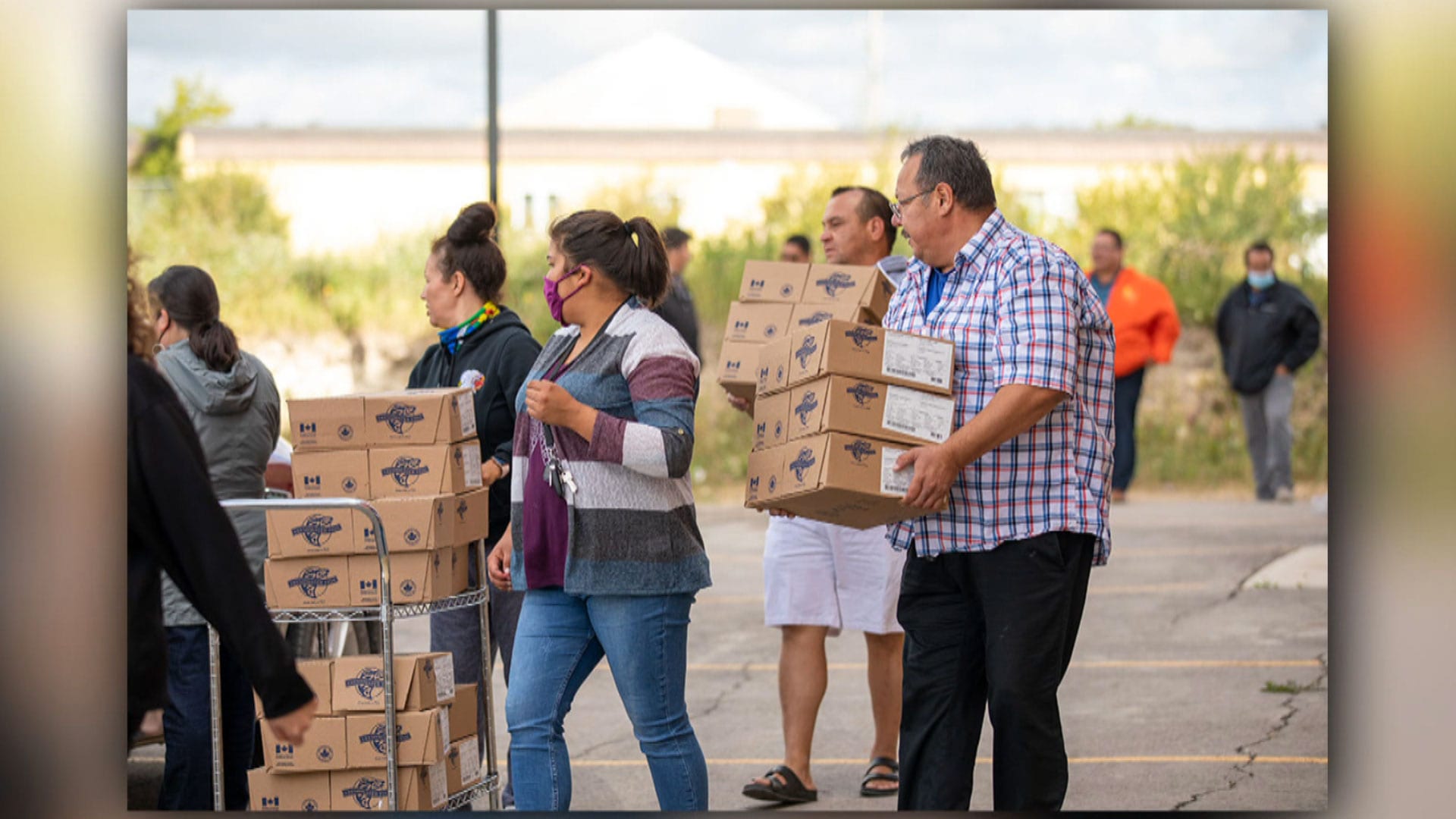A first-of-its-kind federal food surplus program will distribute millions of kilograms of fish to 75 Indigenous communities in Manitoba and Saskatchewan.
And Fisher River Cree Nation in Manitoba’s Interlake region has received millions of dollars to help make the delivery.
“This ensures that they get fresh nutritious food,” said Minister of Northern Affairs Dan Vandal in an interview with APTN News.
“In this case, fish that would have otherwise been wasted.”
The Surplus Food Rescue Program is a new initiative of the federal government to support Canada’s food system.

It is re-directing fish normally processed by Winnipeg-based Freshwater Fish Marketing Corp., which stopped purchasing fish in March as a result of the COVID-19 pandemic.
Instead, Fisher River Cree Nation will receive more than $10 million to purchase and deliver the fish from Canada’s inland lakes.
“COVID-19 is a tough time for everybody,” said Vandal. “The restaurants shut down, the markets shut down, and so a lot of the producers the Manitoba fishers had all this fish that they could not sell.”
“Working with Freshwater Fish Marketing Corporation, our government, in the case of Manitoba, purchased over $10 million worth of fish from fishers that would otherwise be unsold.”
Fisher River and its partners had lots of walleye on hand to ensure the surplus fish is able to get to northern and Indigenous communities, which is why they received the money.
Statistics Canada
According to a Statistics Canada report released in June, one in seven Canadians indicated they live in a household where there was food insecurity for over a one- month period during the COVID-19 pandemic.
Deliveries of fish to Fisher River and Peguis First Nation have already begun, with each on-reserve member getting between one and five kilograms of freshwater fish.
The fishermen may not make profit but Vandal says it will ensure they can continue to fish in the future.
“I believe they’re not making profit but they’re getting their expenses paid,” he said.
“It’s going to allow them to remain whole and allow them to continue fishing into the future. Basically applying – using their profession, their skills continuing – to catch fish and continuing their way of life.”
The program hopes 10 per cent of the fish will reach northern communities.










